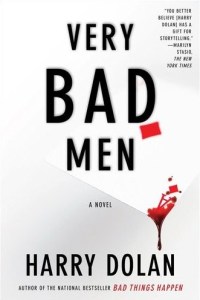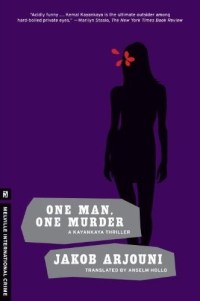The Charlestown Connection by Tom MacDonald
 Monday, August 1, 2011 at 12:46PM
Monday, August 1, 2011 at 12:46PM 
Published by Oceanview Publishing on August 1, 2011
Dermot Sparhawk is stocking shelves in a Boston food pantry when Jeepster Hennesey staggers through the door. As Hennesey dies in Sparhawk's arms, a knife buried in his back, he gives Sparhawk a key and says the word "Oswego." Written on a piece of tape wrapped around the key is the name "McSweeney." Before long, ruffians affiliated with the IRA are trying to persuade Sparhawk to reveal Hennesey's last words. As Sparhawk investigates, he learns that the mystery somehow relates to Hennesey's membership in a prison "literary society" called the Oulipo Boys. Further investigation connects the mystery to the worlds of art forgery and high stakes poker and brings Sparhawk into contact with a woman living in the projects who (according to Sparhawk's source) is an undercover FBI agent investigating Somali terrorists.
The Charlestown Connection is Tom MacDonald's first novel. He paints a vibrant picture of Boston's Charlestown neighborhood and enriches the narrative with glimpses of Charlestown's troubled history. The book is filled with unusual characters who are sometimes more colorful than interesting. Sparhawk's alcoholism makes him instantly familiar, but I got no sense of urgency from his battle with the bottle -- his newfound sobriety seemed too easy. Friends who help Sparhawk with the mystery include Glooscap, who speaks slowly and without contractions because "contractions are for the lazy, uttered only by sluggards"; an isolated, wheelchair-bound veteran named Buck Louis; Angus Og, a sometimes delusional veteran who claims to have advised Henry Kissinger about Vietnam and John Updike about baseball (could he be telling the truth?); and the too cutely named Harraseeket Kid, a character who adds nothing to the story. I am impressed that MacDonald didn't succumb to the temptation to turn the characters into superheroes. Louis, for instance, is an adept researcher but he can't break through firewalls with ease like the hackers who show up to provide a convenient assist in typical thrillers.
On occasion, The Charlestown Connection suffers from the first novel blues: unnatural dialog, awkward phrasing, uneven pace. A lecture on female genital mutilation in Somalia is well-intentioned but out of place. More troubling is Sparhawk's relationship with the FBI agent. Maybe Sparhawk has an animal magnetism that inspires professional women to jump into bed with him despite his alcoholism, his minimum wage job, and his residence across the street from the projects, but MacDonald didn't lay the kind of foundation that might have convinced me of Sparhawk's irresistibility. A museum curator's unexplained desire to become Sparhawk's buddy also struck me as artificial. My most serious reservation is the amount of time the characters spend talking with each other, repeating information the reader has already gleaned. The redundant descriptions of fact not only slow the novel's pace, they make the characters seem dense, as if they need to be told why something is important when they were commenting upon its importance in an earlier chapter.
MacDonald clearly did his research. Apart from being interesting in their own right, his discussions of the Oulipo movement and art forgery add credibility to the plot. The story is clever but unexceptional. As a first effort, this novel isn't bad, but it didn't make me eager to encounter these characters again.
RECOMMENDED WITH RESERVATIONS


